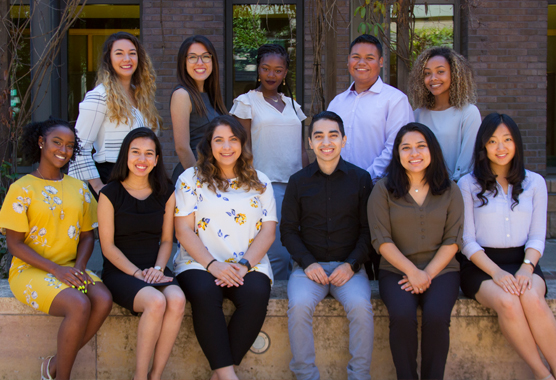Principles of Community

Embedding the Principles of Community and Inclusive Excellence
At the MIND Institute, we are committed to fostering a respectful, inclusive, and collaborative community that supports the dignity, potential, and individuality of every person. We take pride in the achievements of all members of our community, and we celebrate our differences. We recognize that a diverse and respectful environment is essential to scientific discovery, innovation, and meaningful progress. We value open dialogue, freedom of expression, and the exchange of ideas—upheld with civility, empathy, and a shared commitment to the well-being of our community. We strive to create an environment where all individuals feel seen, heard, and supported, regardless of their background or identity. We honor the variety of lived experiences and perspectives that enrich our work and deepen our understanding of the communities we serve. We will strive to build and maintain a culture and climate based on mutual respect and caring and to ensure that Inclusive Excellence principles are woven into the work we do every day as we address the mission of the MIND Institute.
The MIND Institute is an interdisciplinary, collaborative research, clinical, and educational center committed to deepening our scientific understanding of the challenges associated with autism and other neurodevelopmental conditions.
The vision of the MIND Institute is to develop more personalized, equitable, and scientifically validated systems of support and interventions that help neurodivergent individuals to live their best lives.
Pipeline, Recruitment and Retention: faculty, personnel, and trainees
Goal 1: Recruit, retain and support the advancement of a wide-ranging cohort of faculty with different perspectives and backgrounds and a particular focus on ensuring all faculty, trainees and staff feel supported and included. We believe this will help improve access to excellent health care for people with disabilities and address cultural and linguistic intersections within disability.
Goal 2: Recruit, hire, retain, and support the advancement of personnel from a cohort with multiple types of experiences and backgrounds with the aim of having competent staff who reflect local, state, and national demographic of people we hope to serve.
Goal 3: Recruitment, retention, and advancement of a strong cohort of graduate and postdoctoral level trainees with different experiences and backgrounds who provide culturally and linguistically sensitive and competent care and integrate these differences in research.
Goal 4: Create and/or support an undergraduate pathway programs to encourage the next generation to pursue specialty fields for people with disabilities. These pathway programs will include individuals with disabilities and/or those from different communities within the disability field to promote health outcomes for all.
Climate
Goal 1: Improve infrastructure at the MIND to support IDARE principles in an effort to achieve health and educational excellence for all people with disabilities. Develop infrastructure that supports competence in IDARE principles and builds capacity to address challenges bringing quality health and education services to everyone.
Goal 2: Improve our understanding of, and interactions with, people with disabilities across multiple backgrounds and disseminate this information with partners.
Research, Clinical Care, Public Service and Training
Meaningfully include people with Intellectual and Developmental Disabilities and their families from multiple backgrounds.
Institutional Commitment
Ensure accountability to IDARE efforts at the MIND in all areas of research, clinical, public service and staff and faculty support.

